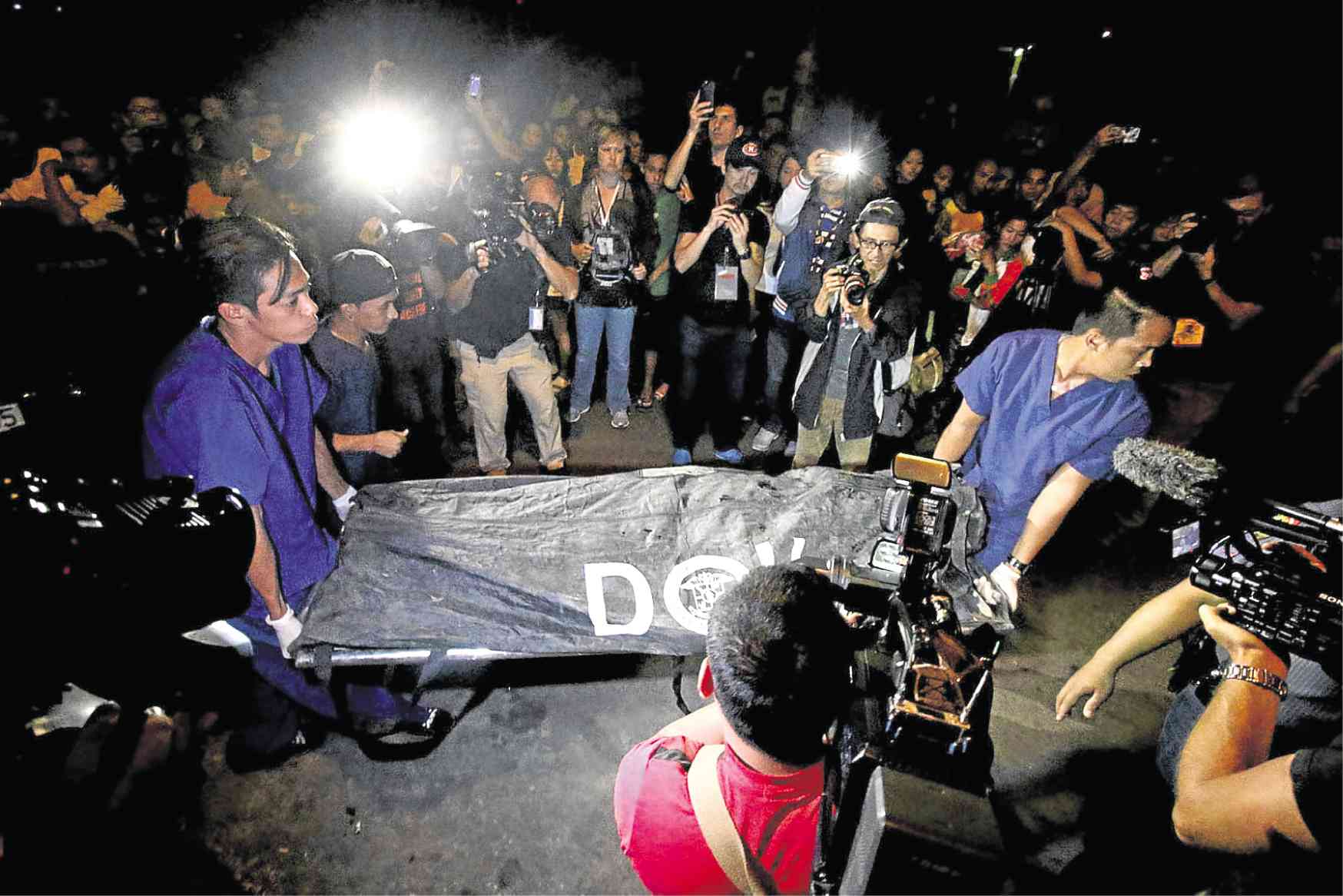Academe-led database: Over 7,000 suspects killed in 3-year drug war

ANOTHER STATISTIC A victim in the war on drugs is stretchered away from a house at Vista Verde Subdivision in Caloocan City in January 2017. —INQUIRER PHOTO
More than 7,000 drug suspects—mostly poor, male breadwinners from Metro Manila—have been shot dead during the course of the Duterte administration’s three-year war on drugs, according to Drug Archive, an independent listing of alleged extrajudicial killings nationwide.
The Ateneo School of Government on Friday released the updated number of drug-related killings from the Drug Archive, the academe-led database prepared by Ateneo de Manila University, De La Salle University and the University of the Philippines, which was launched in 2017.
5,021 deaths in 16 months
Compiled and validated through news reports, the archive is arguably the sole independent effort to record and document all extrajudicial killings in the drug war outside of the Philippine National Police’s own tally.
Last year, the consortium noted 5,021 deaths in the first 16 months of the Duterte presidency.
Since then, over 2,000 more people have died in the drug war, with over half of them killed in alleged shootouts with police.
“(These figures) continue to raise concerns as to whether police follow the standard operating procedures set by their manual,” said co-lead reseacher Jenna Atun, referring to fears of police abuse.
The killings remain heavily concentrated in Metro Manila with 2,475 deaths since 2016, according to the Drug Archive.
The new numbers also reflect a “geographical shift” in the killings, Atun said. While the National Capital Region continues to lead in terms of body count, Central Luzon, Calabarzon and Central Visayas have since cut its lead.
But while over two-thirds of recorded deaths in Manila (76 percent) and Quezon City (66 percent) were attributed to police, nearly half of all killings in Caloocan and Navotas were carried out by vigilantes.
Rights violations
Another study, “Examining the Anti-Drug Legal Framework with a Human Rights Lens” by the same academic consortium, revealed that the memoranda and circulars governing voluntary surrender under the government’s “Oplan Tokhang” violated several constitutionally guaranteed rights.
The study conducted by Ateneo Human Rights Center (AHRC) hopes to bolster a pending Supreme Court petition seeking to declare as unconstitutional the three-year drug war.
“With the benefit of hindsight, these documents, plus [their] implementation, [have been found to be] violative of constitutionally guaranteed rights,” said Ray Paolo Santiago, AHRC director and coresearcher.
An assessment of at least 17 issuances that operationalize the “tokhang” system reveals vague or absent shortcuts that compromise the rights to privacy, due process, counsel, information and health, Santiago said.
Making it worse, he said, is the people’s “lack of understanding of human rights … which allow the government to continue its violations.”
“If the guidelines [governing the drug war] have indeed not been consistent with the standards provided for and by the Constitution, we should look next into what we should do and who should be held into account,” Commission on Human Rights Chair Chito Gascon said.